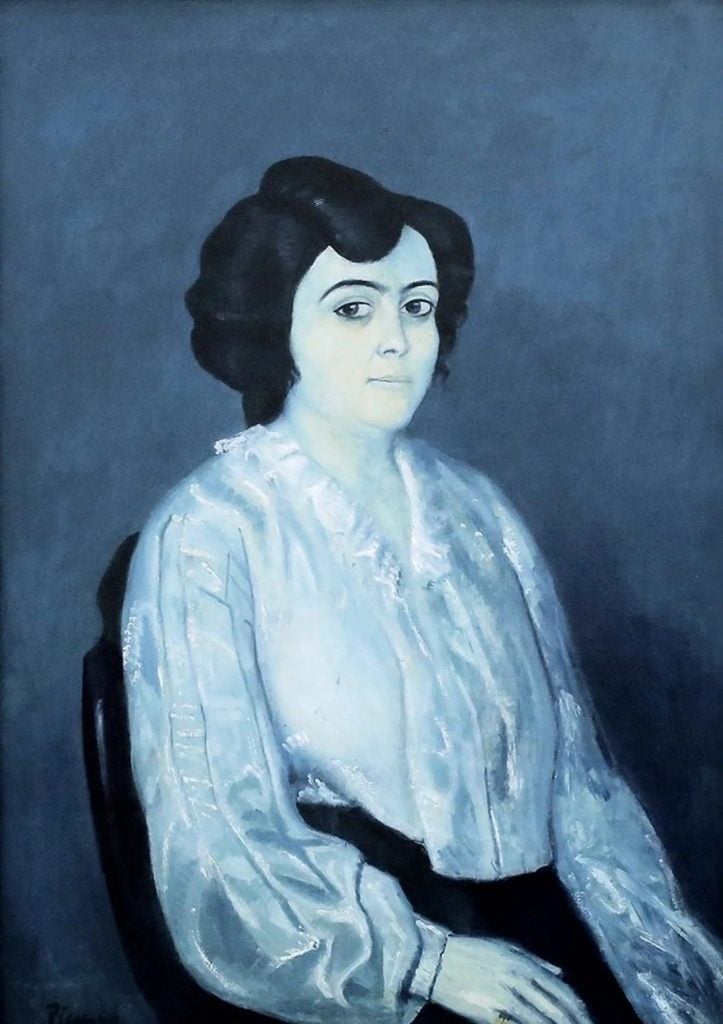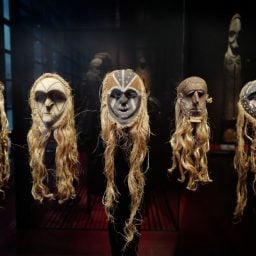As the 50th anniversary of the death of Pablo Picasso approaches—he died on April 8, 1973—a long-running Nazi-era restitution dispute over one of his paintings is back in the headlines.
The German culture minister is calling on the Pinakothek der Moderne in Munich to agree to a hearing to resolve the question of who actually owns Madame Soler, a 1903 Blue Period masterpiece by the Spanish artist that has been out of view in the museum galleries since at least January.
The heirs of German Jewish banker and art collector Paul von Mendelssohn-Bartholdy claim that, in 1934, he was forced by Nazi persecution to sell the work to Jewish dealer Justin K. Thannhauser as part of a group of five Picassos. The heirs have been seeking the return of the painting, a portrait of the wife of Picasso’s friend Benet Soler, a tailor, since 2009.
The Bavarian State Painting Collections, which oversees the Pinakothek, purchased the work from Thannhauser in 1964. Maintaining that Von Mendelssohn-Bartholdy, who died in 1935, did not sell the painting under duress, it has thus far refused to let the dispute appear before German Lost Art Foundation’s Advisory Commission.
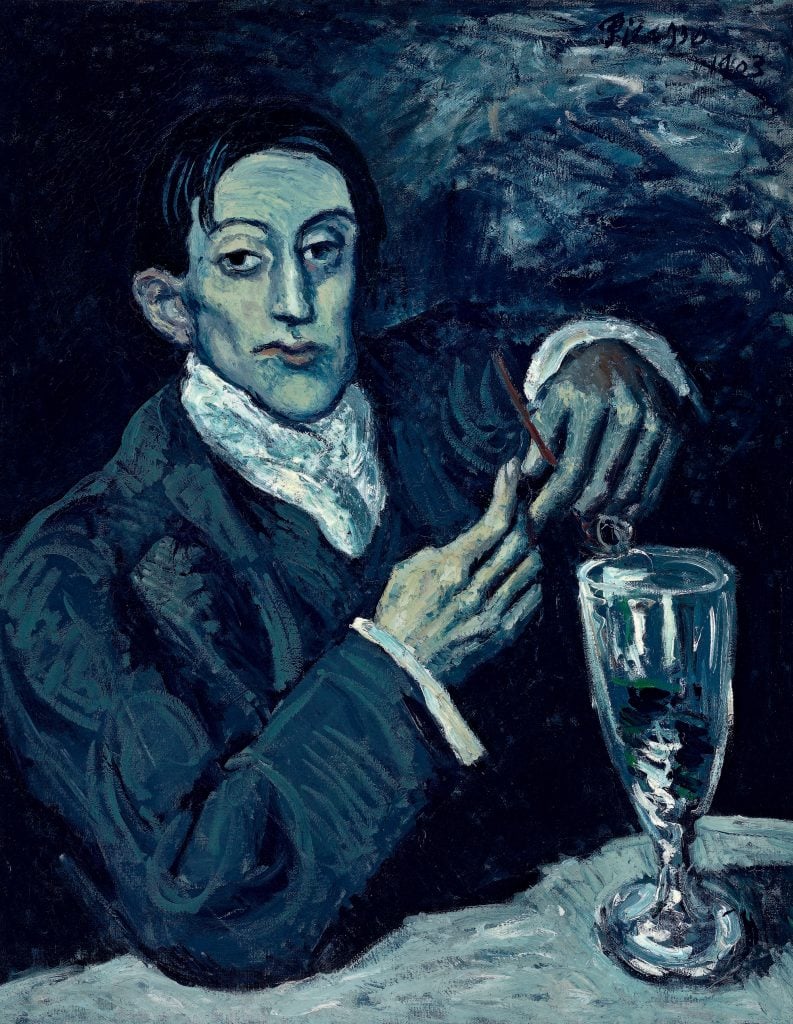
Pablo Picasso, Portrait d’Angel Fernández de Soto (The Absinthe Drinker), 1903. The painting sold at Christie’s London in 2010 for £34.7 million ($51.8 million) following a settlement between the Andrew Lloyd Webber and the heirs of Paul von Mendelssohn-Bartholdy, a German Jewish collector forced to sell it under Nazi rule.
“I expressly call on the Bavarian state government to finally clear the way for the Bavarian State Painting Collections to agree to a review by the advisory commission. This is now overdue,” Claudia Roth, Germany’s commissioner for culture and the media, told German daily Süddeutsche Zeitung this week.
Roth’s predecessor, Monika Grütters, had also called on Bavaria to agree to have the case heard. In 2016, the New York Times reported, she wrote a letter to the heirs stating that all state-run and state-funded museums must refer requests for Advisory Commission hearings to the panel.
Germany established the Advisory Commission, formerly known as the Limbach Commission, in 2003 as a result of its adoption of the Washington Principles on Nazi-Confiscated Art in 1998.
The 44 nations that signed the principles pledged to ensure that art and other cultural property lost during Nazi rule is returned to its rightful owners, regardless of statutes of limitations. In Germany, there is little legal recourse by which to seek restitution for Holocaust-era losses without the commission—even though both parties must agree to a hearing.
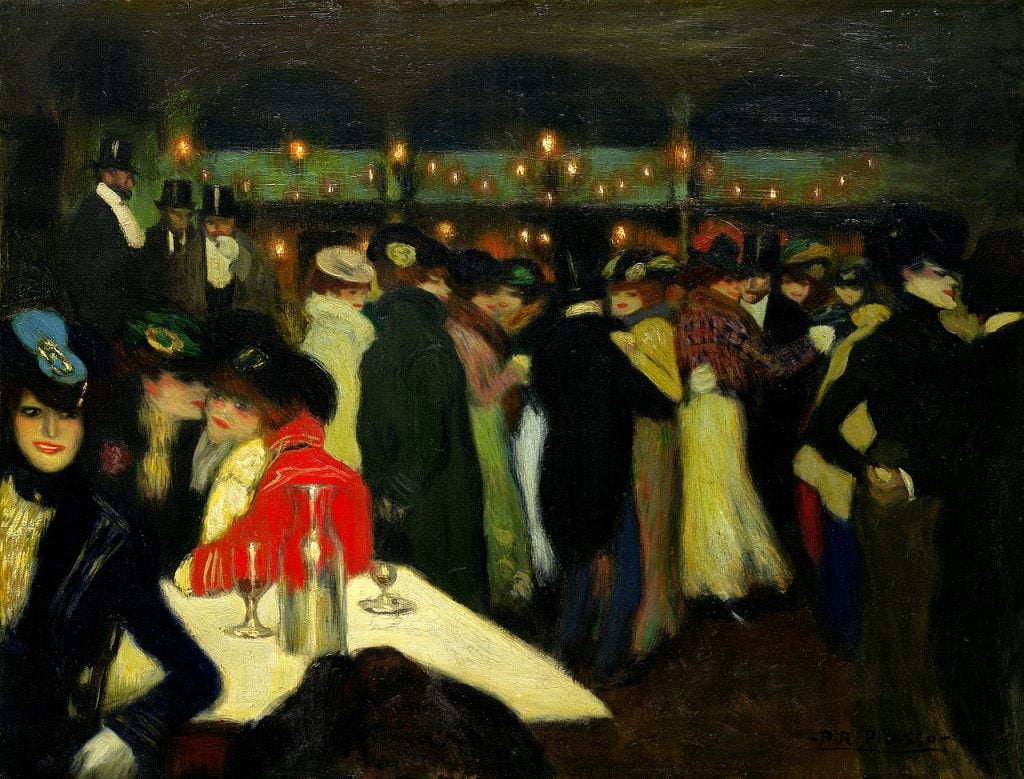
Pablo Picasso, Le Moulin de la Galette (ca. 1900). Collection of the Solomon R. Guggenheim Museum, New York, Thannhauser Collection, Gift, Justin K. Thannhauser, 1978.
The museum first declined to do so in 2011, insisting that there was no evidence that the sale was forced. “The commission,” Pinakothek legal council Robert Kirchmaier told Der Spiegel, “was founded for ambiguous cases. Not for clear-cut ones such as this.”
In 2013, Von Mendelssohn-Bartholdy’s heirs filed a lawsuit seeking the return of Madame Soler against the state of Bavaria in the U.S. District Court for the Southern District of New York.
The court found in 2014 that the U.S. did not have jurisdiction in the case under the 1976 Foreign Sovereign Immunities Act, and the Supreme Court rejected the family’s appeal in 2016. That left them with few avenues to secure its return.
But the Von Mendelssohn-Bartholdy heirs have found more success in their attempts to recover four other Picasso artworks that their ancestor sold to Thannhauser.
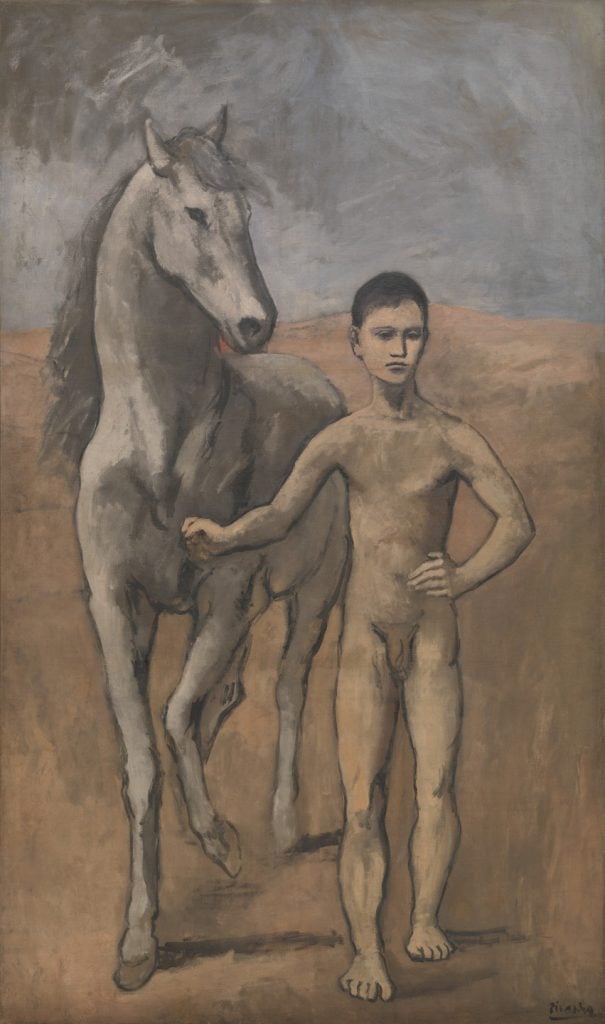
Pablo Picasso, Boy Leading a Horse (1905-06). Collection of the Museum of Modern Art, New York.
In New York, the family reached a settlement with the Museum of Modern Art and the Guggenheim Museum in 2009—two years after the museums had initially asked a court to declare them the rightful owners of two Picassos.
Instead, the heirs got $5 million, according to Der Spiegel, while the Guggenheim kept Le Moulin de la Galette, a gift from Thannhauser, and MoMA held onto Boy Leading a Horse (1905–06), donated to the institution by CBS founder William S. Paley.
The family also settled with the Andrew Lloyd Webber Foundation in 2010, after having prevented the planned 2006 sale of Picasso’s Portrait of Angel Fernandez de Soto, also known as The Absinthe Drinker, from the composer’s collection. It finally sold later that year at Christie’s London for £34.7 million ($51.8 million).
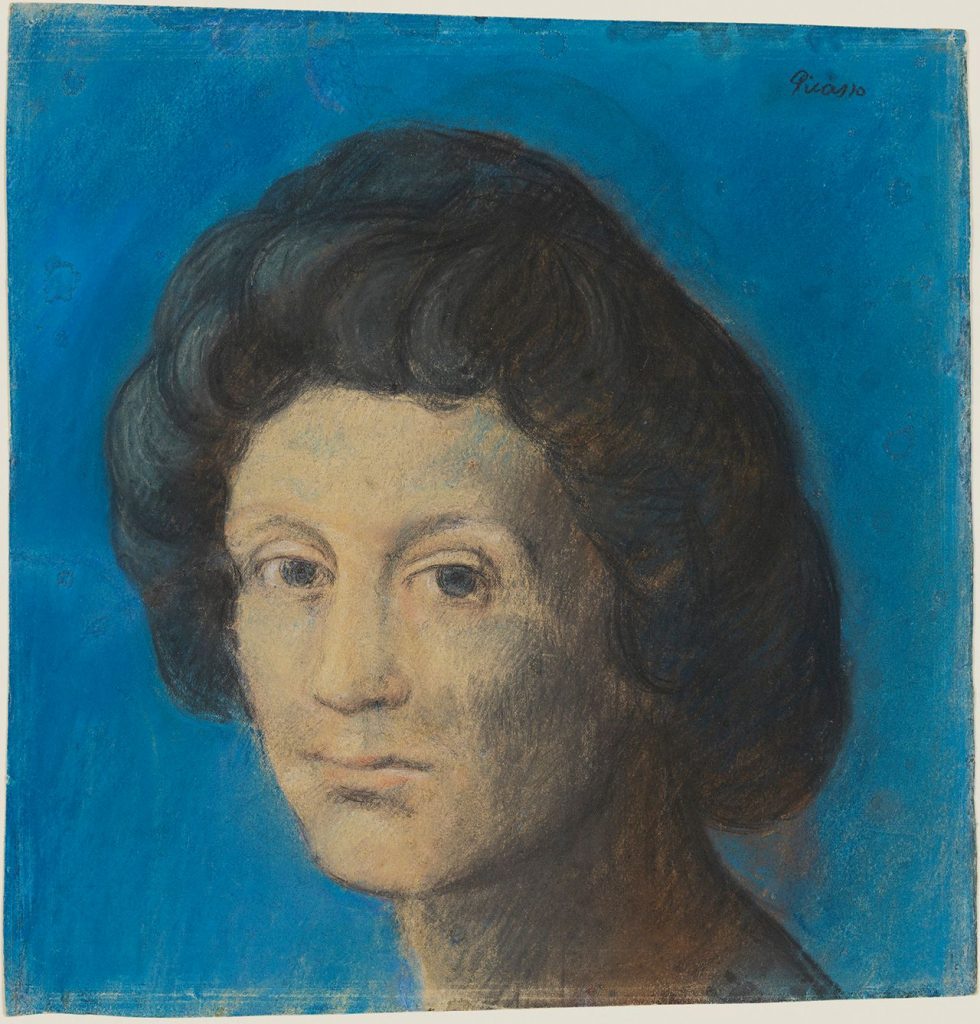
Pablo Picasso, Head of a Woman (1903). Formerly from the collection of the National Gallery of Art in Washington, D.C., Gagosian offered it for sale following its 2020 restitution to the heirs of Paul von Mendelssohn-Bartholdy, a German Jewish collector forced to sell it under Nazi rule.
The most recent victory came in 2020, when the National Gallery of Art in Washington, D.C., returned Picasso’s Head of a Woman (1903) to the family. A Blue Period pastel on paper, the piece had been a gift from the Ian Woodner Family Collection in 2001. The museum agreed to the restitution without the case going before a court. (Gagosian promptly offered the work for sale for $10 million.)
But the Bavarian State Painting Collections continues to deny the Von Mendelssohn-Bartholdy heirs’ claim to its own Thannhauser Picasso.
“The heirs have reached fair and just solutions with the possessors of all five of these works except Madame Soler,” their lawyer, John J. Byrne Jr., told Artnet News. “This is not fair. Justice demands that the Mendelssohn heirs be afforded a just open and fair hearing on the merits of their claim.”
UPDATE, April 6, 2023:
“The decisions on reviewing the cases by the ‘Beratende Kommission’ (Advisory Commission), formerly called Limbach Kommission, aren’t taken by the museum itself, but by the Bavarian State Ministry for Arts and Sciences on the basis of the results of the museum’s provenance research and the recommendations of the museum’s director general,” a representative for the Pinakothek der Moderne told Artnet News in an email.
The painting Madame Soler has not been on view at the museum since 2020, with the presentation of two long-term displays of selections from its collection in that time, Oliver Kase, director of collections at the Sammlung Moderne Kunst, added. He noted that the museum only has space to show 300 or 400 of the 20,000 works in its care. While a trio of Picasso paintings can currently be seen in galleries on the themes “Norm and Criticism” and “Body and Space”, Madame Soler is not among them as “no room is actually dedicated to the portrait as a genre itself.”
